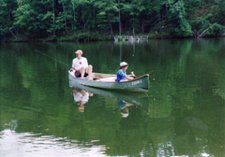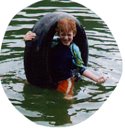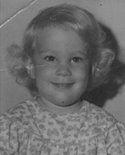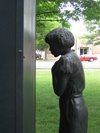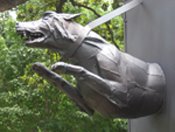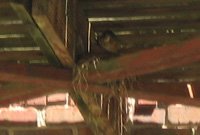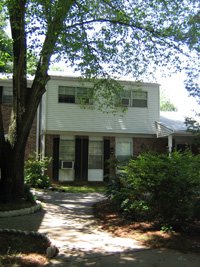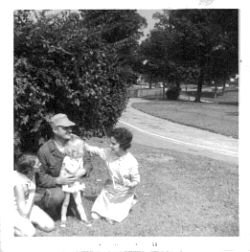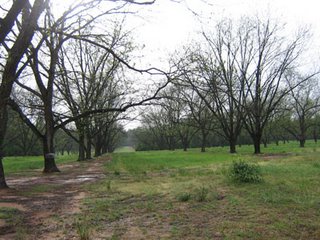Today is significant simply because it’s the day I write about fog. And here I am. It’s foggy this morning, so it’s an appropriate time to write about it. That quiet, dark feeling.
But it’s not any old fog I want to write about—it’s specifically fog on the parkway. And not just any old parkway. The Blue Ridge Parkway.
Usually, when we talk about “being in a fog,” it’s a stagnant place. Lack of forward motion, lack of vision, no clarity, bordering on despair. But fog on the parkway is a very different thing. Hard to see through at times, but exciting.
Here’s how it happens. I start out on a sunny morning, a little ambivalent about my destination, but enjoying the clear fall views out across the layers and layers of ridges. After about 35 minutes, just as I’m beginning to forget to drink it all in—whump—I’m in the fog. It’s not gradual. I don’t see it coming.
Can’t go over it, can’t go under it, can’t go around it. Gotta go through the door.
And then it’s magical in a whole new way. Mysterious. I downshift and take tentative steps forward.
I’m still moving, though, and so is the fog. It slides down the escarpment above me, and caresses the car with its long fingers. It rolls and plays, an otter in the shallows. It kisses the trees and then moves on, while they stretch out in longing, waving it toward the valleys below.
The fog delights in playing with my perspective. It blots out my vision, so that I can only see a few feet of the yellow line, emerging snake-like in front of me, just barely keeping me on the road. A car emerges abruptly, the headlights two blind saucers, and it’s gone.
Then a bubble in the mist—still foggy above me and all around, but the road itself is a tunnel to follow. I can see what lies ahead and behind, but with no periphery whatsoever. Only my imagination and memory let me know what surrounds . . . if I trust them. After all, it could all be different now, couldn’t it?
Abruptly, I’m whisked out of the fog. Azure above, miles of mountains spreading out, my way is clear. It looks like elation.
Fog on the parkway is an apt metaphor for the last two years of my life, as well as my process of writing creatively.
Especially before I decided to write, I said more than once that I felt like I was on the parkway in the fog. Just able to see what was directly in front of me, driving carefully, only able to focus on the immediate present because I had no idea where I was supposed to be going. Some part of me believed that the road kept going up there, and that it was winding around to someplace good, but I had no idea of the destination. Not even enough of an idea to be ambivalent. All I could do was drive, be curious, and try to be patient. The patience thing was tough—it was more like driving through the fog when you have to go to the bathroom really bad, but you don’t want to stop to do it.
And even now that my general way is clear to me (I’m committed to seeing this book through to the end, and I know I’ve got three days a week to do it, more or less) the fog continues to tickle my ear lobes and curl my hair. It’s been clear which story I wanted to start with, but I have no idea what’s beyond it. I need to remember that the mist will reveal it to me when I get there.
The writing process is the same. Keep moving, if blindly. Trust the path. Let the mist play around me, and enjoy it on the days I can. Notice the differences in texture, thickness, awareness. When clarity comes, celebrate! And write it all down before I’m back in the fog.

Fog is water in the air—two elements in one. Transformative. It gets on your skin, and droplets rest lightly in your hair. You breathe it in instead of drinking. It becomes a part of you.
In the fog, scenic overlooks are a joke, an exercise in futility. Fog forces me to follow my wise African friend’s advice—I can only be present in the here and now. The rest is gone. Evaporated in the mist.
Fog is dynamic and alive. To enjoy the fog, rather than just enduring it, you must have comfort with ambiguity. You’ve got to relish the mysteries of life, rather than denying them. You’ve got to be willing to sit down and have a cup of tea with paradox. Pandora’s Box.
You also have to be relaxed in the midst of complete silence (unusual in this noisy world). You’ve got to be an explorer. You must find excitement, rather than simply fear, in the unknown. You’ve got to be willing to learn, especially about yourself, since that’s just about all you can see when you’re in the fog.








